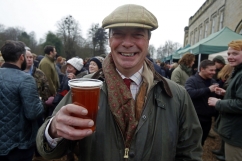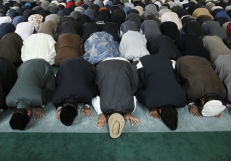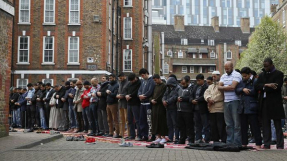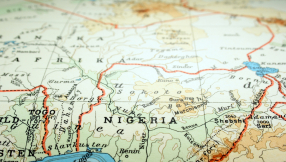The Muslim population in Britain has increased from 1.55 million in 2001 to 2.71 million in 2011 – making it larger than all other non-Christian groups put together.
In depth analysis of the 2001 and 2011 censuses by the Muslim Council of Britain has found that the number of children who identify as Muslims in the UK has almost doubled in a decade.
A third of all Muslims in the UK are under 15, while just four per cent are over 65. However, the report notes that though the numbers have risen, fewer than one in 20 of the UK's overall population follow Islam. "Demographic alarmism is scaremongering," it warns.
There is a higher rate of unemployment among the Muslim population in comparison to the overall population, while 26 per cent have no qualifications. Additionally, Muslim students are less likely to attend top Russell Group universities.
The report also found that almost half of the Muslim population (46 per cent) lives in the 10 per cent most deprived parts of England. Perhaps most significantly, while fewer than 50 per cent of Muslims were born in Britain, 73 per cent say that their only national identity is British.
Muslims do not have an issue with "British values", Omar Khan, of race equality think tank the Runnymede foundation, deduced.
Speaking to BBC Asian Network, he said the report "nails some significant myths about Muslims. The numbers of Muslims, which is often exaggerated; how proud Muslims are to be British; how well they fit in; and the narrative around British values."
"They're proud to call themselves British, don't have allegiances to other countries in any major way, and they don't have any confusion around where their identity lies," he added.
"Muslims are part of the social fabric of Britain's plural society and are to be found from Land's End to Stornoway. Muslim communities play a significant part in the increasing diversity of Britain," the British Muslims in Numbers report, led by Dr Sundas Ali of the University of Oxford, said.
Deputy prime minister Nick Clegg has already responded to the findings. He said: "Drawing on analysis like this, together we can help create jobs, drive growth and enable more people to get on – building the stronger economy and fairer society we want for Britain's future."
"Every person, whatever their background and circumstances, should have an equal chance to thrive," Clegg continued.
"What's not in doubt is that British Muslims can be proud of the contribution they make to our country."
















